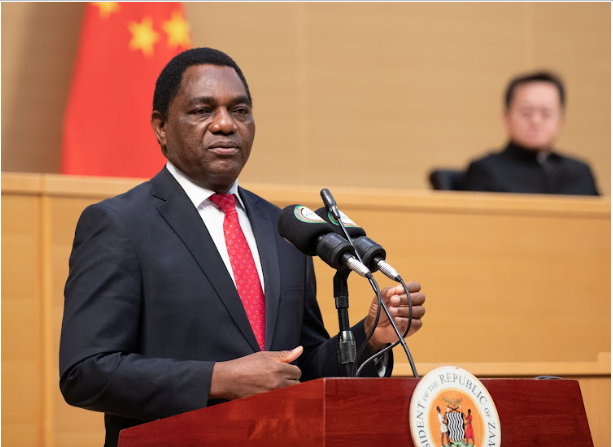 Zambian President Hakainde Hichilema has recently suspended three judges from the Constitutional Court, sparking national debate and international concern over the independence of the judiciary. The suspension stems from accusations of judicial misconduct, but critics argue that the real reason lies in a previous ruling the judges made in favor of former President Edgar Lungu, Hichilema’s political rival.
Zambian President Hakainde Hichilema has recently suspended three judges from the Constitutional Court, sparking national debate and international concern over the independence of the judiciary. The suspension stems from accusations of judicial misconduct, but critics argue that the real reason lies in a previous ruling the judges made in favor of former President Edgar Lungu, Hichilema’s political rival.
The suspended judges—Anne Sitali, Mungeni Mulenga, and Palan Mulonda—played a critical role in deciding Lungu’s eligibility to contest elections in 2016, a decision that did not favor Hichilema when he contested the election outcome. With the upcoming 2026 elections, there is a belief that the president is attempting to influence the judiciary to secure a political advantage by reducing the number of judges favorable to Lungu.
Political analysts and civil society groups have raised concerns that this move is an attempt to eliminate competition for Hichilema in the next election. The timing is also significant, as the Constitutional Court is set to rule on Lungu’s eligibility to run in 2026. By removing these judges, Hichilema may be positioning the court to issue a ruling that bars Lungu from the race, thus ensuring a more favorable political landscape for himself.
Lungu’s Patriotic Front (PF) party has labeled the suspensions as unconstitutional and an attack on the country’s democratic institutions. Lungu himself has urged Zambians to stand up for judicial independence, stating that if the judiciary is compromised, the nation’s democratic foundation is at risk.
The judges now face a disciplinary process, and their fate will likely shape Zambia’s legal and political environment in the run-up to the 2026 general election. Observers worry that the president’s actions could set a dangerous precedent, one where the judiciary is influenced by political ambitions rather than impartial justice.
Ennywealth


